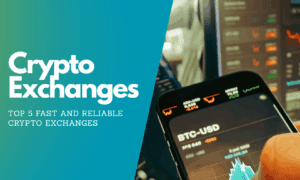Even traders with solid experience ‘in the field’ can occasionally slip up when dealing with digital assets. However, for newcomers overwhelmed by informational clutter, the risks are even higher. Without a proper understanding of market patterns, platform features and functionality, tiny mistakes may lead to huge financial losses and erode trust in the process. To ensure a smoother trading experience, it is essential to explore which missteps are most common among novice traders and how to avoid them by choosing recommended crypto exchanges and maintaining a detailed, strategic approach.
- Selling Assets at the Wrong Time
The digital asset market is known for its rapid shifts and major unpredictability. Asset prices can either stay flat or surge and crash in a matter of minutes. One of the common mistakes beginners make is selling during a sharp decline out of fear. Hasty and emotional decisions often lead to selling at a loss, especially if the asset is likely to rebound.
How to avoid:
Carefully study market behavior, identify common cycles, and stay updated on relevant news about the digital asset in question. Using tools like ‘limit orders’ helps prevent impulsive actions. Timing the market perfectly is difficult, but understanding broader trends can help you choose the right exit moment. This is particularly true when trading through recommended crypto exchanges, where market analysis tools and educational content are often within reach.
- Overlooking Fees and Hidden Costs
Many traders enter the market with profit as their sole focus, failing to acknowledge the additional transaction-related costs. Platform commissions, withdrawal fees, and currency conversion costs are only a few of the extra charges you can face, and they significantly reduce your earnings, especially if you plan on being an active trader or selling assets in large volumes.
How to avoid:
Before initiating any transaction, review the pricing model in detail. Recommended crypto exchanges typically offer transparent fee structures and sometimes provide reduced costs for specific actions, such as using internal platform tokens or reaching a trading volume threshold.
- Choosing Unreliable Trading Platforms
Beginners frequently register on platforms without verifying their credibility, which inevitably leads to security risks. Poorly regulated exchanges may experience sudden shutdowns, cyberattacks, or withdrawal issues, and the lack of proper user protection mechanisms increases the chance of irretrievable losses.
How to avoid:
Always research user reviews and verify the legal status of the platform. Recommended crypto exchanges are typically registered with financial authorities and implement advanced fraud prevention systems, including escrow services for peer-to-peer trades.
- Ignoring Tax Responsibilities
Tax obligations can be complex and vary significantly depending on the region. Still, many new traders overlook the need to report profits from digital asset sales. Errors in calculations or complete failure to report can lead to fines or legal consequences.
How to avoid:
Study the tax structure in your jurisdiction and document every transaction. Some countries only require payment upon sale, while others track each transfer. Many recommended crypto exchanges provide downloadable trading reports that simplify tax declarations and ensure compliance with regulations.
- Executing Large Transactions in Illiquid Markets
Selling substantial amounts of digital assets in a single order on a platform with limited liquidity can negatively impact the asset’s price. This action may lead to lower returns due to price slippage.
How to avoid:
Try to split your sales into smaller portions and assess the platform’s liquidity level. Recommended crypto exchanges often support high-volume trading and provide real-time data on market depth, helping users avoid dramatic price swings during execution.
- Weak Security
Losing access to digital funds is often not the result of market volatility but of poor cybersecurity practices. Many traders underestimate the risks of using weak passwords, ignoring multi-factor authentication, or storing large sums in insecure online wallets.
How to avoid:
Enable two-factor or multi-factor authentication and avoid storing private keys in vulnerable environments. Never share sensitive data, and make sure the platform uses encrypted connections. Security is a top priority for recommended crypto exchanges, which typically offer advanced protection measures to safeguard user funds.
Navigating the digital asset market is a learning curve but by understanding what can go wrong, beginners can significantly reduce their risk exposure. While emotions and haste often drive poor decisions, a rational approach, paired with the use of recommended crypto exchanges, ensures more secure and efficient transactions. From fee transparency to security protocols, every detail matters when your goal is not just to sell – but to sell wisely.





























